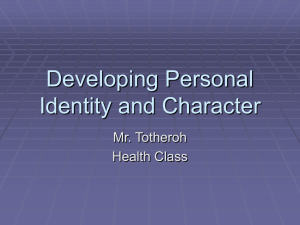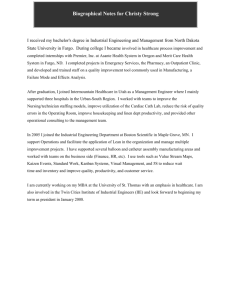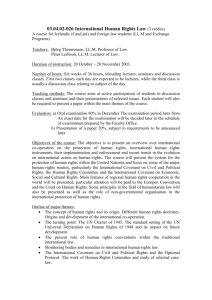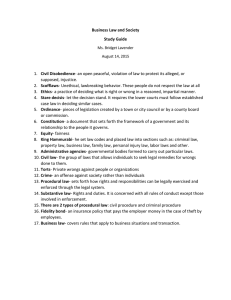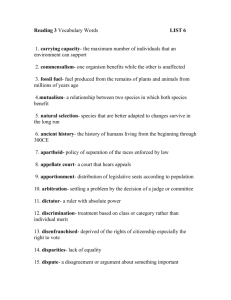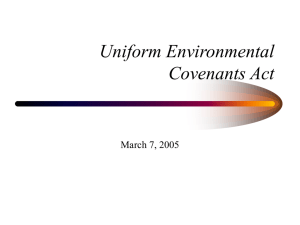HUMAN RIGHTS LANGUAGE, PRINCIPLES, & VALUES
advertisement
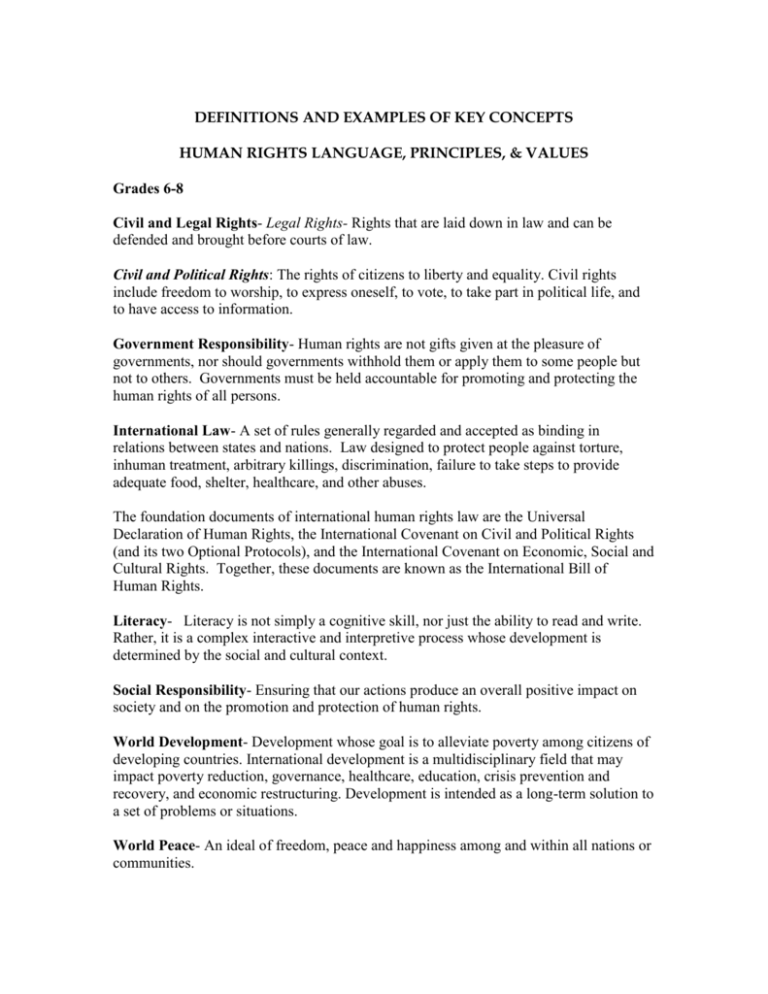
DEFINITIONS AND EXAMPLES OF KEY CONCEPTS HUMAN RIGHTS LANGUAGE, PRINCIPLES, & VALUES Grades 6-8 Civil and Legal Rights- Legal Rights- Rights that are laid down in law and can be defended and brought before courts of law. Civil and Political Rights: The rights of citizens to liberty and equality. Civil rights include freedom to worship, to express oneself, to vote, to take part in political life, and to have access to information. Government Responsibility- Human rights are not gifts given at the pleasure of governments, nor should governments withhold them or apply them to some people but not to others. Governments must be held accountable for promoting and protecting the human rights of all persons. International Law- A set of rules generally regarded and accepted as binding in relations between states and nations. Law designed to protect people against torture, inhuman treatment, arbitrary killings, discrimination, failure to take steps to provide adequate food, shelter, healthcare, and other abuses. The foundation documents of international human rights law are the Universal Declaration of Human Rights, the International Covenant on Civil and Political Rights (and its two Optional Protocols), and the International Covenant on Economic, Social and Cultural Rights. Together, these documents are known as the International Bill of Human Rights. Literacy- Literacy is not simply a cognitive skill, nor just the ability to read and write. Rather, it is a complex interactive and interpretive process whose development is determined by the social and cultural context. Social Responsibility- Ensuring that our actions produce an overall positive impact on society and on the promotion and protection of human rights. World Development- Development whose goal is to alleviate poverty among citizens of developing countries. International development is a multidisciplinary field that may impact poverty reduction, governance, healthcare, education, crisis prevention and recovery, and economic restructuring. Development is intended as a long-term solution to a set of problems or situations. World Peace- An ideal of freedom, peace and happiness among and within all nations or communities. World Political Economy- A variety of different but related approaches to studying economic behavior of countries, individuals, and companies, which range from combining economics with other fields to challenging assumptions of traditional economics.

